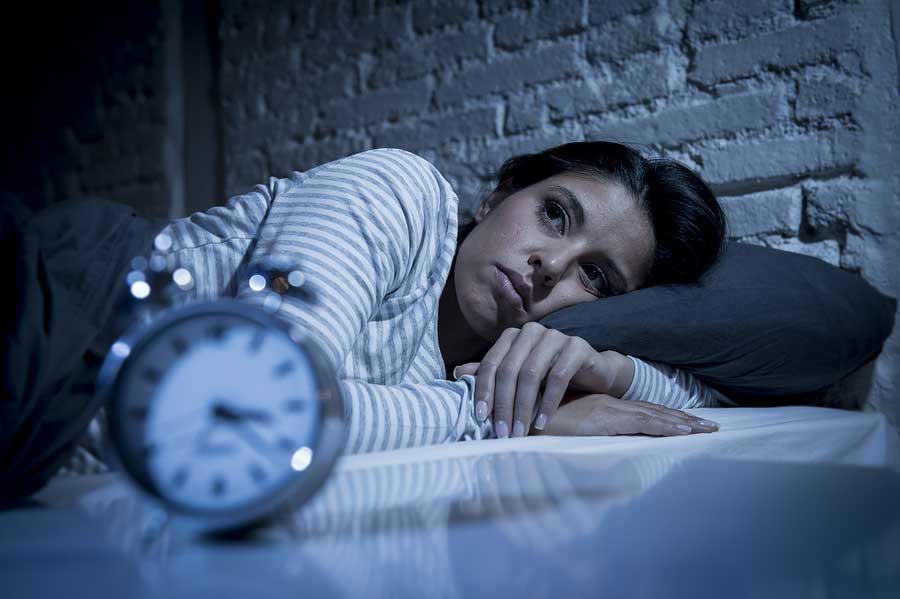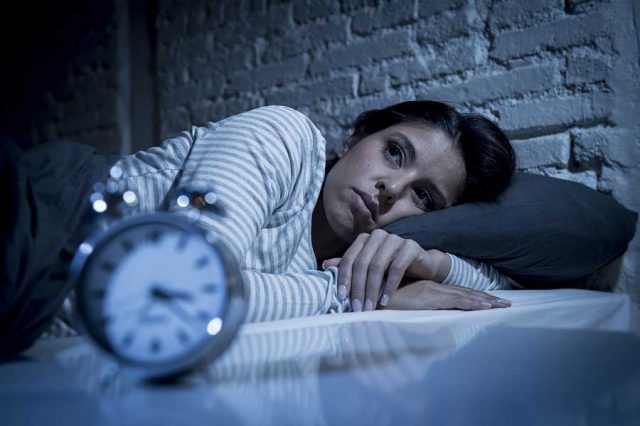Reviewed by Phillip Waite, Ph.D.

When I was 25 years old, I started experiencing the symptoms that would lead to my diagnosis of Fibromyalgia and Sjogren’s Syndrome. I was exhausted all the time, my joints were constantly stiff, my muscles ached badly, and had such nerve pain in my hands and feet that I had trouble getting up in the morning. One issue that especially sabotaged my health was the acute pain at night. Getting to sleep was a nightmareandmdash;Iandrsquo;d lie in bed silently counting down the hours until I had to get up for work. Even when I got to sleep, there was no guarantee that Iandrsquo;d manage to sleep through the night or get back to it once I woke up. The next day, I was foggy, clumsy and in even more pain than before.
It was a demoralizing process that took a toll on both my physical and mental health. However, with help from my doctors and others in the chronic pain community, I learned there are ways to improve sleep quality, which in turn helps treat chronic pain and other health concerns. While thereandrsquo;s no one-stop cure for insomnia caused by pain (and boy do I wish there was), thereandrsquo;s something empowering about taking steps to better your own well-being. The key is to intervene in a cycle that can drive your health into the ground: the cycle of pain signals and sleeplessness, or as I like to call it “painsomnia”.
Connection Between Pain and Sleep
If youandrsquo;ve ever lost sleep, regardless of the cause, you likely noticed that you felt achy the next day or were more aware of little aches and pains you generally ignore. This is because sleep deprivation actually makes pain worse. What results is a cycle where pain and discomfort lead to poor sleep quality, which in turn makes pain worse the next day, which then interferes with sleep that night. Fortunately, there are concrete steps you can take to halt this cycle and establish your own cycle of rest.
Lifestyle Changes
Some of the major strategies to manage insomnia and pain are lifestyle changes. Certain habits can lead to interference in our sleep cycles, whether that means trouble getting to sleep, staying asleep or achieving deep sleep. Studies have identified several behaviors that should be avoided in order to improve sleep quality:
- Consuming caffeine after 3 p.m.: Drinking caffeine too late in the day can mean itandrsquo;s still in your system when youandrsquo;re trying to sleep. Since caffeine is a stimulant, this can leave you awake and alert.
- Napping: Napping can be problematic because it may throw off your sleep schedule.
- Drinking alcohol before bed: Alcohol can block REM sleep, which means that even though youandrsquo;re unconscious, youandrsquo;re not achieving the deep rest you need.
There are, however, habits that you can introduce into your routine to increase your sleep quality:
- Going to bed and getting up at the same time every day: Setting a consistent bedtime can help your body get into a schedule, which makes it easier to fall asleep.
- Turning off the television, computer, tablet or other screen at least an hour before bedtime: Screens can be especially problematic when youandrsquo;re nearing bedtime, as the light prevents your body from generating the chemicals that make you feel sleepy; this is why medical professionals recommend you put screens away so early.
- Exercising regularly before 2 p.m.: Exercise can certainly tire you out, but it can also boost your mental state and combat pain. When you exercise, your muscles experience microtears, which your body then repairs, making them stronger than before. Essentially, youandrsquo;re jump-starting your bodyandrsquo;s healing system.
Relaxation Techniques
Sleeping with chronic pain isnandrsquo;t just about managing your physical pain. Depression, anxiety and stress can also interfere. Part of treating the problem is getting your mind into a state where itandrsquo;s relaxed enough to pass into the deeper stages of the sleep cycle.
There are as many relaxation techniques as there are people, so you should feel free to try a few until you find the right one for you. Common forms of relaxation can include reading, having a cup of (noncaffeinated) tea or listening to music. Meditation is also a popular choice. You should avoid being on your phone, however, or doing anything too engaging. The idea is to get your brain to wind down. Try implementing these soothing activities an hour before bedtime, so you can gradually ready your mind.
Medical Assistance
Of course, lifestyle changes canandrsquo;t fix everything. We need certain pain medications to treat our pain and keep our bodies running at a functional level. But there may be some changes we can make to our medication schedules or prescriptions, or to our mind and bodies, to improve sleep quality and reduce pain at night.
When it comes to sleeping with chronic pain, you want to make sure youandrsquo;re taking your medication at the right time so itandrsquo;ll be effective by the time you actually want to go to sleep. Having a set bedtime can help with this. You may also find that alternatives such as yoga, meditation, massage, or light exercise can reduce pain at night and lead to more restful sleep.
You should also review your nightly medications to make sure none of them cause difficulty sleeping as a side effect. If they do, talk to your doctor about what you can do to combat these effects. You may be able to take them earlier, change dosages or find another medication that doesnandrsquo;t cause insomnia.
Did you find this article helpful? Join us at HealingWell for support and information about your condition. Connect and share with others like you.




